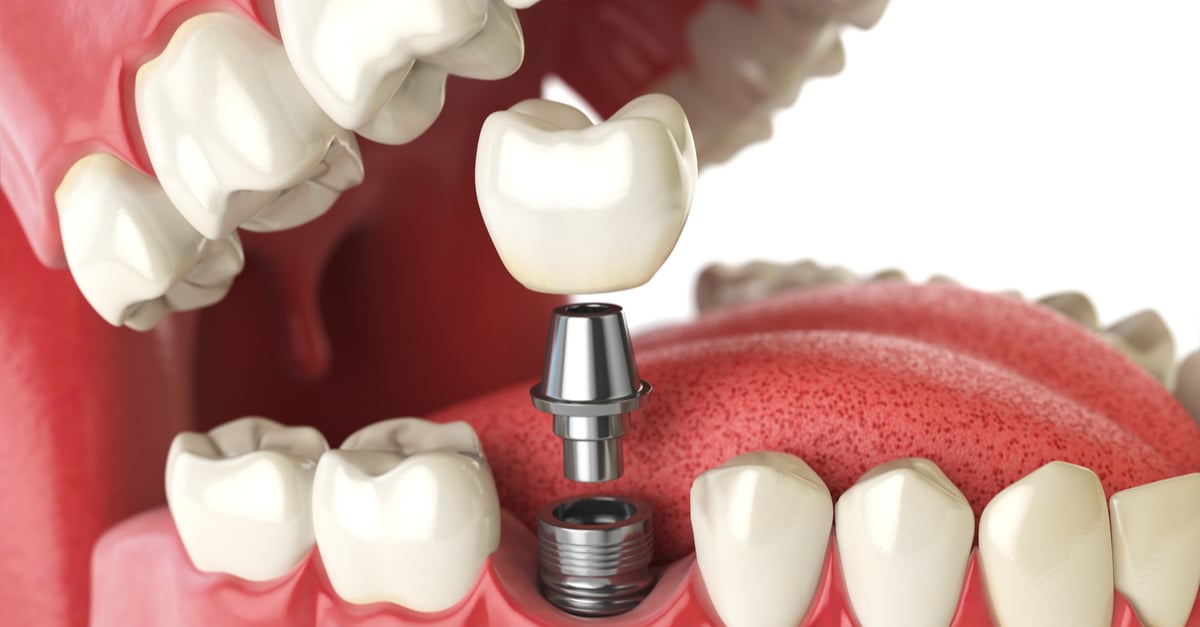Dental Implants Improve Quality Of Life
Dental implants are a semi-permanent way to replace missing teeth. There are plenty of ways to lose teeth, but there aren’t many ways to restore them. Implants are an excellent option for people who want a durable, long-lasting, realistic smile.
Related Topics (ads):
Why do Adults Lose Teeth?
Losing teeth is a normal part of childhood, but adults can lose teeth, too. Anyone can lose a tooth, but some people face a higher risk, including:
- Seniors
- People who don’t have access to dental care
- Smokers
- People who have diabetes, high blood pressure, or rheumatoid arthritis
More often than not, tooth loss is caused by untreated gum disease. Many factors contribute to gum disease, like:
- Hormonal changes
- Smoking
- Certain illnesses, including HIV and cancer
- Some medications
- Poor oral hygiene habits (brushing and flossing)
- A family history of gum disease
Tooth loss unrelated to gum disease is most often the result of accidents, acute (short-term) infections, and poor nutrition.
Related Topics (ads):
What are Dental Implants?
Dental implants are made up of three parts: a titanium rod (or artificial root) that’s implanted into the jaw bone, a crown (or cap) that’s designed to look and feel like a natural tooth, and a connector that joins those two pieces. They’re not permanent, but they’re the most permanent form of dental prosthetic, lasting about 25 years.
The Procedure: What to Expect
Dental implants require several visits with an oral surgeon.
At Your First Dental Implant Appointment
- Your doctor will take X-rays and conduct a thorough exam of your mouth
- A member of the clinical team will administer local anesthesia to make sure you don’t feel any pain throughout the procedure. If you’re especially nervous, you can request twilight anesthesia (where you’re awake but loopy) or general anesthesia (where you’re asleep). If you’d like to discuss your options, you should contact the dental clinic before your surgery day. They may need to call in a specialist doctor, called an anesthesiologist.
- Once your mouth is numb, the surgeon will implant the titanium rod into your jaw bone. They’ll stitch-up the surrounding area, and you’ll need to let the gum around the rod heal before you return for your artificial tooth. The healing process can take a few months.
The doctor may or may not attach the connector at the first appointment.
At Your Second Dental Implant Appointment
- Your surgeon will assess your healing and decide if it’s time to continue with the implant process. If they didn’t install the connector at the first appointment, they’ll do that before fitting the faux tooth.
- They’ll place the artificial tooth. If it doesn’t fit properly and requires adjustments, you’ll need to return for at least one other appointment, as the tooth is usually molded off-site.
For one tooth, each appointment takes less than an hour. If several teeth need replacing, the process can take much longer.
Related Topics (ads):
Pros and Cons
Pros of Dental Implants
- They’re sturdy, and they last longer than dentures or bridges
- They look, feel, and function like natural teeth
- You can care for them as you care for your natural teeth, no additional care is required
- The procedure is common and has been performed for decades
- The success rate is very high, at 90-95%+
Cons of Dental Implants
- There’s a (small) risk of infection that can lead to bone loss
- Risk of sinus issues, like recurring sinusitis
- Risk of nerve damage, which can cause pain or numbness
- It’s a long process
- They’re costly, and insurance doesn’t always cover dental implants
How Much Do Dental Implants Cost?
On average, dental implants cost anywhere from $1,500 to $6,000 per implant. That seems expensive, but if you consider the lifetime value, it’s a good investment:
$6000 (maximum) over the estimated 25 years works out to $240 per year or $20 per month.
Medicare doesn’t cover dental implants, but Medigap and Medicare Advantage might. If your missing tooth is causing complications that affect your quality of life, your private insurance might chip in, too. You’ll need a note from your surgeon confirming that they recommend the procedure for medical reasons.
Dental implants are more affordable than ever. If you’re really frugal, you can have a new doctor (under the supervision of one who’s more experienced) do your dental implants at a dental school.
If your missing teeth are affecting your eating habits, your health, or your confidence, schedule a consultation to speak with a dentist or oral surgeon about dental implants. With the cost of dental implants dropping and the procedure’s reputation for delivering excellent results, there’s no reason to let your missing teeth hold you back from being the best version of you and living your best life.
